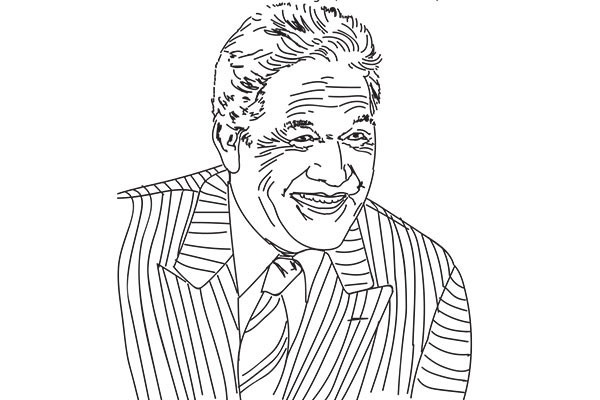Order is crumbling. The democratic world is in disarray. Neoliberal capitalism, academia’s Marxist identity politics, immigrants, the expert elite - they’re all dragging us into an abyss. Only the toughest ‘anti-politician’ politician will rise to lead us in our anger, our discontent, and our confusion.
Winston ‘The Immortal Pinstripe’ Peters was in Dunedin last weekend for NZ First’s annual gathering, drawing about 300 people and covering a range of topics ahead of next year’s general election. In his speech, there was no shortage of talk of the strife and hardship that Kiwis are suffering. Peters covered tertiary policy, drivers’ licences, foreign investment and Auckland’s housing crisis (an average of one million dollars for a house).
NZ First’s biggest policy announcement, the so-called Up Front Investment Tertiary Policy, looks good. Under this scheme, for every year a student stayed and worked in New Zealand after completing their studies, a year is deducted from their student debt. Steven Joyce, the Education Minister, was quick to dismiss it as unaffordable, but that’s beside the point here; NZ First might be taking a bit of a generational pivot from its traditional greyed base. Whether or not you support NZ First, this is a good thing, because it means more pandering to students next year, fulfilment of campaign promises is not guaranteed.
Looking at Peter's’ speech as a whole, in all its rhetorical, ideological glory, it seems that Peters desperately wants to evolve from king maker to simply king next election and he’s going to get there by riding the anti-establishment wave of populism that has swept across North America and Europe—fundamentally, getting the disillusioned masses to vote.
Winston Peters is already well placed to do this. University of Otago politics lecturer, Dr. Bryce Edwards, says the first principle of populism is not to sit comfortably at the centre of the political spectrum, “but instead to pivot between the margins of the left-right scale.”
Peters took aim at the two major political parties and their similar “neoliberal” economic ideas, describing Labour and National as a choice between Coke and Pepsi. He championed the regions over the urban (the decision to hold the conference in Dunedin wasn’t an accident) and a hard day's work over creative industry.
Most importantly, Peters took aim at the mainstream media, the expert class and the so-called commentariat. "Be ultra-cautious and ultra-careful,” he said. “[The other parties and news media] won’t want us to have a decent run at the election. But the wonderful thing on our side now is new technology.” Indeed, new media has played a significant role in the Trump, Sanders and Brexit episodes. A more cynical person might say if NZ First can pump out some dank memes then they won’t need an attractive tertiary policy.
I’m not convinced NZ First can transform into the kind of mammoth populist movements we’ve seen in the Western world. Peters is viewed as a master of the old guard. He’s the quintessential politician. MMP will continue to give us a colourful parliament, though, and it's not as if Labour has really shone in its role as leader of the opposition. There is disillusionment and anger bubbling away in New Zealand; time will tell whether Peters can tap into it.






